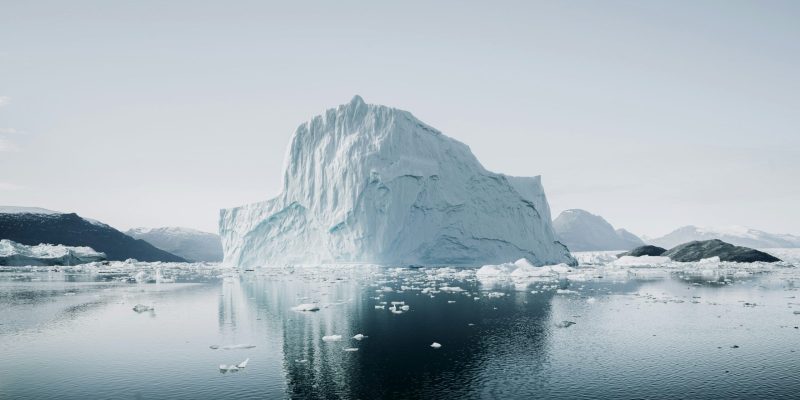QMUL master’s student Mai Jolie Maraj explores the risks of corporate expansion into the Arctic

As the Arctic ice decreases, global power and private interest are surging in newly opened waters, armed with fossil fuel ambitions and flimsy oversight. Behind the promise of economic gain lies a dangerous web of weak regulation, corporate lobbying and daring insurance companies, ill equipped to handle the region’s extreme risks. The result? A growing geopolitical and ecological crisis unfolding at the top of the world.
The Arctic has long been a geopolitical pressure point, once the site of Cold war brinkmanship between the USA and the Soviet Union, now a theatre of commercial ambition and environmental risks. Receding ice is revealing not just new shipping routes, but also a staggering cache of untapped resources. In 2008, the US Geological Survey estimated that roughly 22% of the world’s undiscovered oil and gas reserves lie beneath the Arctic seabed. For resource hungry nations, the thawing arctic is no longer a distant frontier, but an economic pivot point.
In 2013, the UK government admitted these findings in its Arctic Protection Inquiry. Whilst they acknowledged that, despite commitment to green transition, Britain’s energy stability still hinges on oil and gas, the government claimed that even if global warming is limited to two degrees Celsius, oil production must continue to rise. The Arctic, it argued, could play a critical role meeting that demand. Conveniently absent from the discussion is any reference to a binding global framework to cap fossil fuel extractions. This flawed assumption that increased Arctic exploitation is somehow reconcilable with climate goals has since been echoed across Europe, particularly as the war in Ukraine reignited anxieties around national energy security. The focus on cutting emissions, rather than limiting extractions, is a distinction that reveals more than just legal semantics; it exposes a deeper structural complicity: the legal and political frameworks enabling this Arctic expansion to become not just insufficient but actively damaging.
These tensions are playing out most visibly along the tripolar regions, comprised of the Russian-led Eurasian sphere centred around the Northern Sea Route (NSR), the European Arctic influenced by Nordic and Scandinavian states, and a North American zone dominated by Canada and the United States. Under international law, eight artic nations enjoy territorial and economic rights through the Exclusive Economic Zones (EEZs), yet these rights are increasingly contested. Russia has asserted full sovereignty over the NSR, a claim which the USA rejects but Canada supports in an act of mutual recognition aimed at legitimising its own contested claim over the Northwestern Passage (NWP). Meanwhile, Greenland is emerging as a critical player, courted by both China and the USA — the latter has gone so far as to suggest the idea of purchasing the island.
As access to the Arctic expands, so do military interests. Russia’s Artic coastline now facilitates strategic maritime access to energy markets in China, Japan and South Korea. Bolstering President Putin’s naval ambitions. In response both the US and Canada have ramped up Arctic defence investments, despite territorial disputes between them remaining unresolved. The scramble for influence in the thawing North is no longer simply about oil or shipping lanes. It is about who will control the final frontier of the global economy. As the ice recedes, so too does any illusion of Arctic neutrality.
Want to write for the Legal Cheek Journal?
Find out moreThe Arctic’s most fragile ecosystems are now bearing the brunt of a dangerously cosy relationship between governments and industry. Nowhere is this more evident than in the national Maritime Organization (IMO), a UN body unusually saturated with corporate influences. For instance, some have criticised the International Convention for the Safety of Life at Sea (SOLAS), claiming that its mandatory shipping certificates provide little meaningful oversight, and that it fails to address key implications of extremely cold temperatures on toxic cargo, communication issues and infrastructure shortages. Hence it is argued that behind these policies lies aggressive corporate lobbying, prioritising profits over human and environmental protection.
Furthermore, the illusion of safety is further sustained by a patchy and opaque insurance system. While international conventions like the Civil Liability Convention for Oil Pollution Damage (CLC) and the Wreck Removal Convention, require vessels to be insured, premiums are often calculated using limited data. This has created a feedback loop where insurers underwrite high-risk Arctic voyages without proper risk modelling. The Polar Code, while outlining operational dangers, does little to mandate safety innovation. Insurers simply issue the required Hull & Machinery and Protection and Indemnity (P&I) cover, often ignoring the scale of third part risks including oil spills, crew endangerment and environmental wreckage.
Under traditional legal principles like aversio periculi outlined in Sadlers Co v Badcock, insurers typically avoid assuming the risk. However, arctic conditions break these models. Payouts have already begun to exceed collected premiums and industry’s ability to manage Arctic- specific hazards such as seized valves, frozen firefighting systems or non- functioning lifeboats, remains questionable at best. The 2012 Shell-Kulluk disaster illustrates this point (which, as previously mentioned, is yet to be addressed in chapter VII of SOLAS).
Shell allegedly ignored warnings from their preferred marine insurers, who refused to greenlight a winter tow of the Kulluk oil rig across treacherous Arctic waters. Instead, they sought approval from another insurer which authorised the operation. When the Kulluk ran aground, a later US coast Guard report cited systematic failures such as: weak inspections, miscalculated risks, and regulatory blind spots that enabled the voyage in the first place.
Arctic shipping isn’t just a legal grey zone; it is a crisis in waiting. Unless systematic reforms address the entanglement of state interests, weak insurance practices and toothless regulations, future disasters are inevitable.
Mai Jolie Maraj is a law graduate from the University of Kent, originally from Trinidad and Tobago. She is currently pursuing a double master’s degree in commercial law, with academic tenure at both Queen Mary University of London and Singapore Management University.
The Legal Cheek Journal is sponsored by LPC Law.



